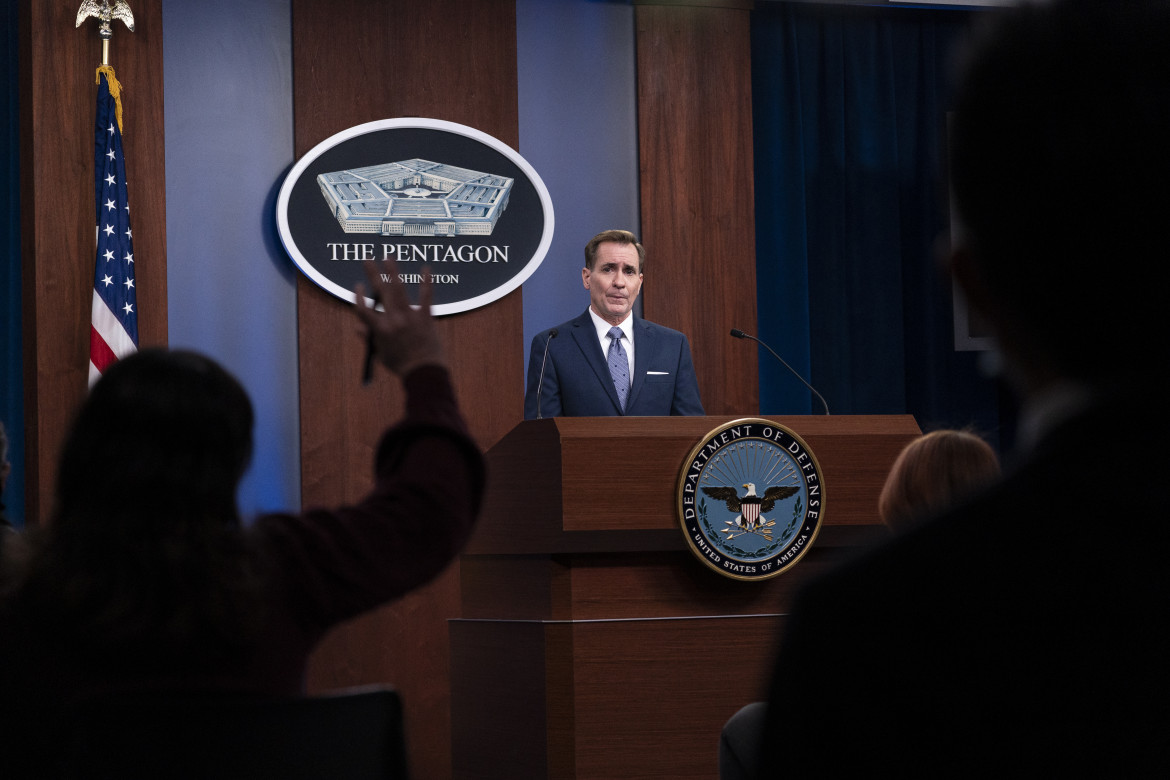Analysis
Biden drops the first bombs on Syria and on his own dialogue with Tehran
Bombs for peace—nothing new under the sun. But it clashes with the diplomatic attempts with Tehran underway for weeks, aiming to return all sides to the negotiating table.

The first air strike of the Biden presidency took place Friday morning, just before dawn, on the border between Syria and Iraq, between Albukamal and Al Qaim. In the deep eastern part of the Syrian territory, according to the Pentagon spokesman John Kirby, the American fighter jets hit a border post controlled by the pro-Iranian Iraqi Kataib Hezbollah and Kataib Sayyid al-Shuhada militias.
Both militias are part of the PMUs, the popular mobilization units: Iraqi Shiite armed groups linked to Tehran that have become known for the role they played both in western Iraq and in Syria itself in the defeat of the ISIS state project (the Kataib Hezbollah, very powerful in Baghdad, made the front pages of Western newspapers for the killing of their secretary general, Abu Mahdi al Muhandis, in the same US raid that killed the Iranian general Suleimani on January 3, 2020).
The airstrike reportedly killed 22 fighters, according to the Syrian Observatory for Human Rights, a London-based organization in opposition to Bashar Assad’s government. The Observatory added that the raids also destroyed some trucks carrying ammunition.
This operation, says U.S. Secretary of Defense Lloyd Austin, was ordered by Biden as a response to the launch of missiles against U.S. positions which occurred recently in Iraq: on February 15 against the Balad air base in Erbil, the capital of Iraqi Kurdistan, in which a Filipino contractor lost his life and others were injured (among them an American soldier), and more recently against the U.S. Embassy in Baghdad in the Green Zone.
According to Washington, the responsibility falls on the Iraqi Shiite militias, which have denied any involvement (on Thursday, the Kurdish-Iraqi President Barzani said he had identified the guilty parties, but did not name them). In any case, the attack did not take place in Iraq—which will host a visit from Pope Francis in a week—but in Syrian territory, an element to be kept in mind: on the eve of the raid, Biden picked up the phone and called the first Arab leader since he entered the Oval Office, Iraqi Prime Minister Mustafa al-Kadhimi, to warn him. Baghdad—in spite of the fact that the PMUs are pressing for the definitive withdrawal of the 2,500 American soldiers in the country—remains an ally which must not be put in too embarrassing a position, a friendly country in which the weight of Washington’s influence and its agenda plays a heavy role. Damascus is not.
The White House’s justification for the Democratic administration’s first concrete act of foreign policy runs along the same interpretive vein: the strikes, Kirby said, are “intended to lower tensions in both eastern Syria and Iraq.”
Bombs for peace—nothing new under the sun. But it clashes with the diplomatic attempts with Tehran underway for weeks, aiming to return all sides to the negotiating table around the nuclear agreement, repudiated by Biden’s predecessor who instead imposed sanctions.
Because Tehran is obviously the real recipient of the message sent by the air strike: while the Islamic Republic has denied any involvement in the launch of the missiles, it is still considered politically responsible. The bombs serve as a reminder of needing to get back the dialogue table (as they remind the Israelis and Saudis which side the US administration is on, despite openings towards Iran and rebuffs towards Riyadh for the murder of the Saudi journalist Khashoggi, certainly an issue at the core of Biden’s talks with King Salman, along with—presumably—the attack in Syria). And they recall that, dialogue or not, Washington does not intend to be subjected to any military pressure in the management of its Middle Eastern interests.
There has been no shortage of reactions. While on social media, Arab citizens from the various countries in the region have mocked “the new course,” identical to the old one, and while various analysts speak of a violation of international law because the indispensable element of defense against an imminent threat is missing, Russia was the one who protested most, about—among other things—only having been warned a few minutes before the raid: “We have heard different information from different sources,” said Foreign Minister Lavrov on Friday. “We want to ask the U.S. directly if they are taking the decision not to leave Syria anymore, to the point of destroying the country.”
China is also protesting, asking for “respect for Syria’s sovereignty, independence and territorial integrity.” And of course, Damascus is protesting: the attack, says a press release from the government, “will lead to consequences that will escalate the situation in the region,” an inauspicious beginning for the policies of the new administration, which “should adhere to international legality, not to the law of the jungle, like the previous one.”
In Tehran, the official reaction is one of condemnation, as expected. But behind the scenes, as Middle East Eye reports, the pro-Iranian Iraqi militias are ready to turn a blind eye: there has been no reaction to the raid, as ordered by Iran.
Originally published at https://ilmanifesto.it/le-prime-bombe-di-joe-biden-sulla-siria-e-sul-dialogo-con-liran/ on 2021-02-27
